Filter by
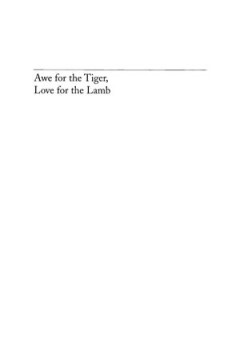
Awe for the Tiger, Love for the Lamb
First Published in 2003. Routledge is an imprint of Taylor & Francis, an informa company.
- Edition
- -
- ISBN/ISSN
- 9780203491805
- Collation
- -
- Series Title
- -
- Call Number
- -
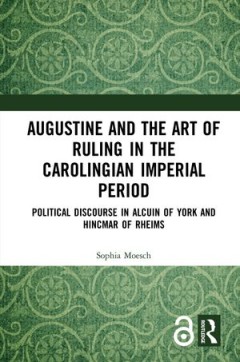
Augustine and the Art of Ruling in the Carolingian Imperial Period
The Open Access version of this book, available at http://www.tandfebooks.com/doi/view/10.4324/9781351116022, has been made available under a Creative Commons Attribution-Non Commercial-No Derivatives 4.0 licence. DOI https://doi.org/10.4324/9781351116022Published with the support of the Swiss National Science Foundation.This volume is an investigation of how Augustine was received in the Carol…
- Edition
- Edisi 1
- ISBN/ISSN
- 9781351116015
- Collation
- -
- Series Title
- -
- Call Number
- -
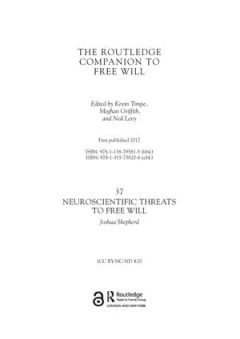
37 Neuroscientific Threats to Free Will
In this chapter, I review recent work on neuroscientifi c threats to free will. What is it for something to threaten free will? Consider, fi rst, an apparent threat. You are walking in the dark, and a shadow looms in the distance. It certainly appears threatening, but you are not sure. What do you do? You consider the source of the threat (the thing casting the shadow, and you attempt to discov…
- Edition
- -
- ISBN/ISSN
- 9781138795815
- Collation
- -
- Series Title
- -
- Call Number
- -
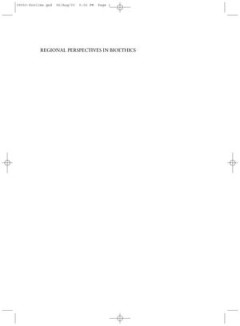
Annals of Bioethics
Regional Perspectives in Bioethics" illustrates the ways in which the national and international political landscape encompasses persons from diverse and often fragmented moral communities with widely varying moral intuitions, premises, evaluations and commitments.
- Edition
- -
- ISBN/ISSN
- 9780203971024
- Collation
- -
- Series Title
- -
- Call Number
- -
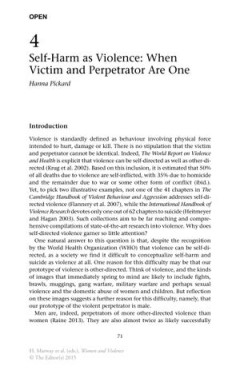
Self-Harm As Violence
This edited collection explores the agency of women who do violence and have violence done to them. Topics covered include rape, pornography, prostitution, suicide bombing and domestic violence. The volume contributes to the philosophical and theoretical debate, as well as offering practical, social and political responses to the issues examined.
- Edition
- -
- ISBN/ISSN
- 9781137015112
- Collation
- -
- Series Title
- -
- Call Number
- -
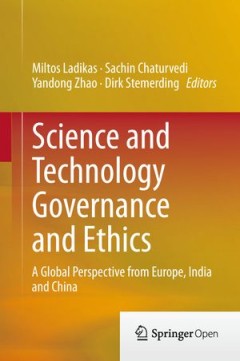
Science and Technology Governance and Ethics
R & D/Technology Policy; Ethics; Food Science; Nanotechnology; Biotechnology
- Edition
- -
- ISBN/ISSN
- 9783319469386
- Collation
- -
- Series Title
- -
- Call Number
- -

Research, Ethics and Risk in the Authoritarian Field
research ethics; authoritarian countries; research methodology; research in the authoritarian field; risk and field research; ethics and field research; authoritarianism; advice for field research; research transparency; research methods; mental impact of field research; planning for field research; dangers of field research
- Edition
- -
- ISBN/ISSN
- 9783319689654
- Collation
- -
- Series Title
- -
- Call Number
- -

Remembering and Disremembering the Dead
This book is a multidisciplinary work that investigates the notion of posthumous harm over time. The question what is and when is death, affects how we understand the possibility of posthumous harm and redemption. Whilst it is impossible to hurt the dead, it is possible to harm the wishes, beliefs and memories of persons that once lived. In this way, this book highlights the vulnerability of th…
- Edition
- -
- ISBN/ISSN
- 9781137538277
- Collation
- -
- Series Title
- -
- Call Number
- -

a Philosophy of Israel Education
Philosophy of Education; Religion and Society; Philosophy of Religion; Judaism
- Edition
- -
- ISBN/ISSN
- 9783319307787
- Collation
- -
- Series Title
- -
- Call Number
- -
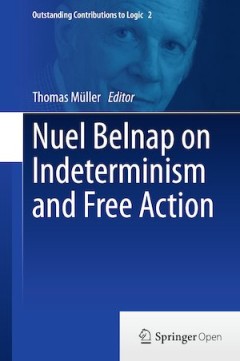
Nuel Belnap on Indeterminism and Free Action
This volume seeks to further the use of formal methods in clarifying one of the central problems of philosophy: that of our free human agency and its place in our indeterministic world. It celebrates the important contributions made in this area by Nuel Belnap, American logician and philosopher. Philosophically, indeterminism and free action can seem far apart, but in Belnap’s work, they are …
- Edition
- volome 2
- ISBN/ISSN
- 9783319017549
- Collation
- -
- Series Title
- -
- Call Number
- -
 Computer Science, Information & General Works
Computer Science, Information & General Works  Philosophy & Psychology
Philosophy & Psychology  Religion
Religion  Social Sciences
Social Sciences  Language
Language  Pure Science
Pure Science  Applied Sciences
Applied Sciences  Art & Recreation
Art & Recreation  Literature
Literature  History & Geography
History & Geography